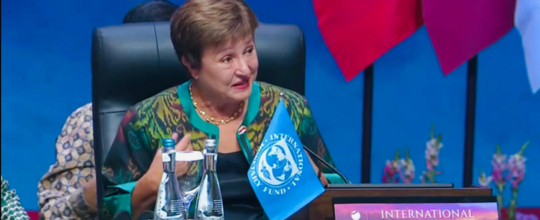Business & Economy
IMF Managing Director Calls For Push Against Fragmentation

IMF Managing Director Kristalina Georgieva on Tuesday called on Southeast Asian nations to “invest in international cooperation” by pushing back against the forces of fragmentation.
Speaking at an annual ASEAN summit in the Indonesian capital Jakarta, Georgieva said that the 10-member bloc could be a powerful advocate for the benefits of cooperation and could count on the IMF as a partner in these efforts.
According to IMF estimates, ASEAN countries contribute around 10 percent to global economic growth—double their weight in the world economy. However, the region of highly integrated economies is experiencing significant scarring from supply-chain disruptions and subdued external demand arising from global shocks.
RECOMMENDED: How Does Pandemic Affect Southeast Asia’s Online Shopping Behavior In 2020?
ASEAN needs even stronger growth to fully recover and continue on the pre-pandemic path to prosperity and economic fragmentation makes this even harder, Georgieva told the summit.
“If the world were to break into separate economic blocs, this would have profound implications for dynamic open economies such as ASEAN.”
Kristalina Georgieva
The role of international institutions in bringing countries together to solve common challenges in Kristalina Georgieva’s new essay for Foreign Affairs.
The IMF’s largest-ever allocation of special drawing rights in August 2021 met its objectives by giving member countries a boost and helping the global economy avoid worse outcomes, the directors of the IMF’s Finance Department and Strategy, Policy, and Review Department write in a blog.
Bernard Lauwers and Ceyla Pazarbasioglu say the benefits of allocation, which injected $650 billion of liquidity into the global economy to help propel pandemic-hit countries toward recovery, are poised to continue.
“More than $100 billion of SDRs in pledges announced by the G20 are being channelled from stronger members to vulnerable low-and middle-income countries, amplifying the direct benefits of the allocation,” the authors write, underscoring the conclusion of a new study.
Culled from IMF.





